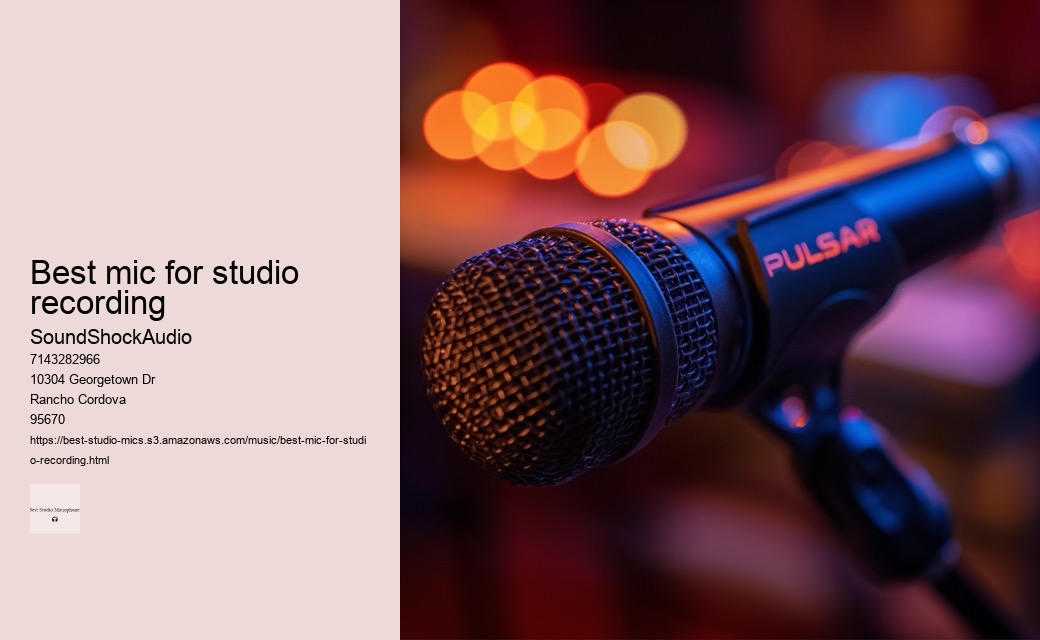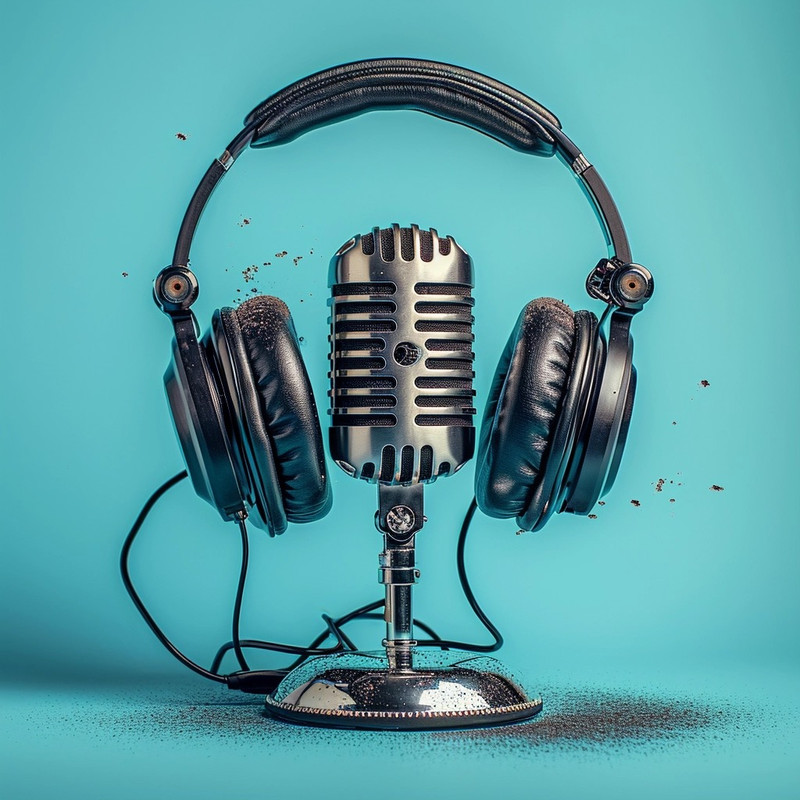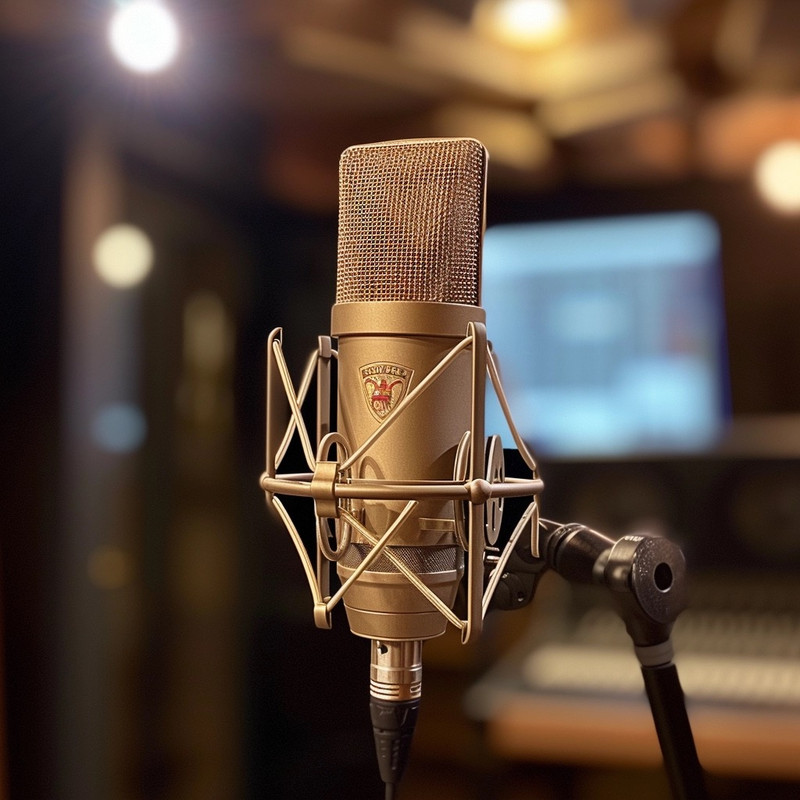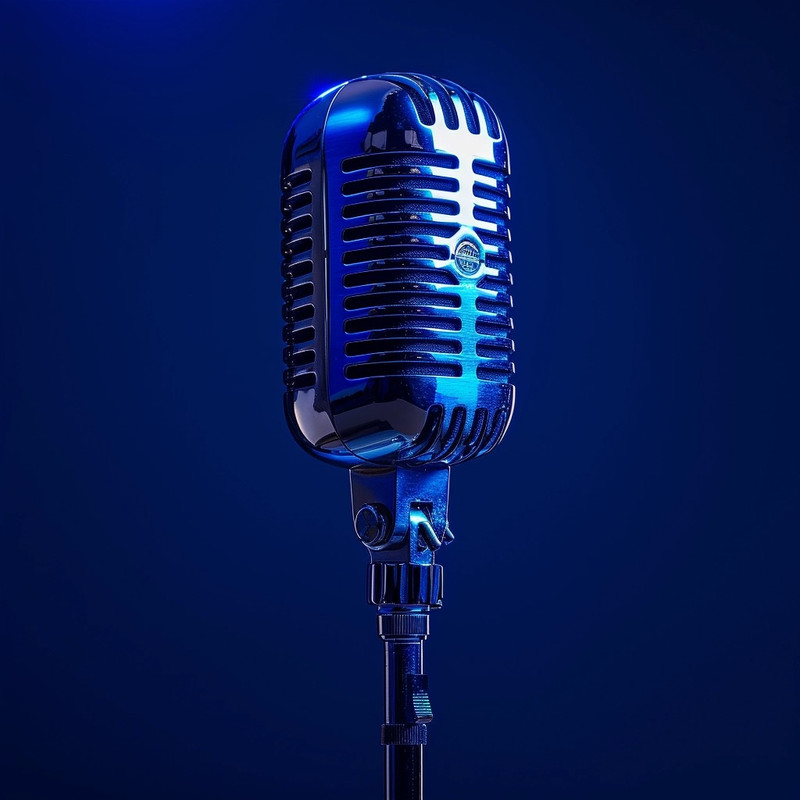

Each microphone on this list excels at its role, whether it is faithfully capturing a vintage acoustic guitarist's distinctive tonal characteristics, or nailing a smooth, velvety broadcast track. You know this better than anyone. The pickup pattern also plays a vital role.
In this ballet of audio excellence, microphones are undoubtedly the prima ballerinas. Amazon Musical Instruments' Best Sellers list includes the 100 most popular products. This modernized vocal recording and is still the industry standard today.
Another consideration is stereo recording techniques such as X/Y configuration where two cardioid mics form a tight angle capturing an accurate stereo image with good phase coherence. Its MkII response also shows a noticeable drop (6dB), around 5kHz.
In selecting the quintessential studio microphone that elevates recordings to professional echelons, it is not merely about choosing the most expensive or technically advanced option but rather finding the right tool that harmonizes with one's unique sonic vision—a microphone that captures every nuance with clarity and transforms raw sound into auditory artistry. It's crisp, clean, and of high quality.
Engineers have long praised the RCA44 on upright bass and acoustic guitarists, as well as drum overheads / room sources. We love equipment that has more than one purpose.
Here's a list of the essential microphones for home recordings. The 10 best vocal studio microphones are presented in the highest quality. This is reflected by the high level of preamp.
Conversely, condenser microphones boast heightened sensitivity and frequency response suited for vocal subtleties and acoustic nuances. Even though it's a fairly heavy microphone, the compact mount that attaches to it base allows it to be held at any angle, on a micstand, with very little pressure.
They are most sensitive to sounds coming from in front of them while effectively rejecting noise at the rear.


Types of Studio MicrophonesIn the quest for audio excellence, one pivotal question often emerges among musicians, podcasters, and audio engineers alike: What is the best studio microphone to transform recordings into professional masterpieces? The pursuit of clarity in recordings thus becomes an exercise in adaptation; it requires understanding both your environment's limitations and aspirations. Its pattern versatility allows for creative miking techniques across various acoustic environments — from intimate vocal booths to grand orchestral halls.
Thanks to the latest technology, you can get a sound that is just as good as a studio costing $1,000 per day. The larger Spirit is a multi-pattern condenser with an extra 10dB pad available.
Thus, while the former may prioritize versatility and affordability, the latter can focus on specialized equipment that captures every nuance of performance. These mics completely block sound from the sides.
In stark contrast, premium microphones are like time-honored wines; they possess character and depth that enhance over time. Furthermore, investing in such calibers of microphones transcends mere acquisition.
It delivers a balanced, natural sound that is ideal for recording and broadcasting applications. Loopback functionality allows you to route audio between different applications.

Moreover, these interfaces come equipped with preamplifiers that boost microphone signals to usable levels. These silent guardians wield influence over the clarity and quality of recordings like unseen sculptors shaping sound. The Blue Yeti series offers plug-and-play simplicity coupled with respectable audio results—perfect for content creators needing fast setups without entangling themselves in technical complexities.
In conclusion, knowing these distinct polar patterns helps us sculpt our desired audio landscape—a critical element in achieving flawless recordings worthy of professional acclaim. Strategic thinking is also important.
Podcasters and broadcasters typically require microphones that excel in rejecting ambient noise while delivering rich vocal quality. As we seek the illustrious title of the best studio microphone to elevate our recordings to professional heights, it is imperative that we ponder over several considerations tailored for varied auditory terrains.
The pursuit of sonic perfection is a nuanced journey, and the choice of a microphone can profoundly influence the auditory landscape of a recording. High-pass filter It's got a crisp, clean feel which is perfect when you play wild.
They integrate effortlessly with computers, negating the need for external audio interfaces or complicated setups. High-quality cables reject noise interference with stoic resolve, delivering unblemished signals for posterity's sake. This legendary sound, which is no longer available and is expensive to buy originals of, is still highly sought after.
In use, this was not as noticeable and may have been compensated by the slight boost above 7kHz. It also comes with a shock mount designed to eliminate electronic noise.
However, this also means they're more susceptible to picking up unwanted background sounds. Moreover, a superior microphone can withstand the test of time.
Some mics boast advanced shock mounts that decouple the mic from physical vibrations, ensuring that incidental contact does not translate into audible interference. You can achieve a professional-sounding recording with a minimum of gear.
The best type of microphone for vocals is typically a large-diaphragm condenser mic, as it offers superior sound quality by capturing a wide range of frequencies and nuances in the voice. These mics are highly sensitive and ideal for studio recording, providing clarity and detail that is essential for vocal tracks. However, the choice can vary based on the specific vocal characteristics and the recording environment.
Taylor Swift has been known to use a variety of microphones for recording, but one of her go-to mics for studio recording is the Neumann U87. This microphone is highly regarded in the music industry for its warmth, clarity, and versatility, making it a popular choice among many artists and producers.
The best microphone for vocals often depends on the specific needs of the vocalist and the recording environment, but generally, large-diaphragm condenser microphones are highly recommended for their sensitivity and ability to capture a wide range of frequencies and nuances in the voice. Models like the Neumann U87, AKG C414, and Shure SM7B are frequently praised for their clarity, versatility, and performance in studio settings, making them popular choices among professional vocalists and sound engineers.
Dr. Dre is known for his meticulous approach to sound quality, and while he has likely used various microphones throughout his career, he is often associated with high-end models suitable for professional studio recording. One of the microphones he has been known to use is the Sony C800G, a tube condenser microphone popular among top producers and artists for its warm, clear sound.